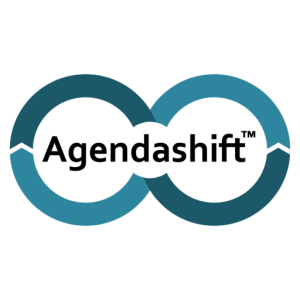[Updated 2023-04-23: Improved the image (borrowed from the latest iteration of Leading with Outcomes: Foundation; minor changes to the text]

What if all failures were failures of context? OK, that’s an exaggeration, but as a working default assumption, it sure beats assuming failures of competence or character. Moreover, it can be the beginning of a generative line of thinking, one that puts you in the role of keeper of context.
Suppose that you’re a leader in a transforming organisation [1] and you witness an unproductive conversation. What is the shared context that this conversation is missing? You might intervene and provide some, but that’s not the point here. Work backwards. What was the conversation that didn’t take place, the one in which that context would have been established? Look not only at formal meetings but at how activities are sequenced, how their respective conversations happen, and their quality. What opportunities for context-creating conversations are we missing?
Looking at your organisation’s processes, it’s easy to focus on just the formal sequence of activities and overlook the interactions that happen (or need to happen) between them, and in particular, their conversations. When each activity involves different people and the chain of activities is long, it’s not hard to see how context gets lost.
Going deeper into organisation design and questions of meaningfulness, suppose now that you come across some work that failed to delight the customer. What went wrong? Lack of skill? Lack of commitment? These are easy conclusions to reach, but let’s try a different kind of assumption. Could this again be a failure of context? Was that work done with a deep enough appreciation of the context into which that work would be delivered? Where was the opportunity to appreciate the customer’s struggles? Where was the opportunity to explore their needs, to identify measures of customer progress, and so on? And suppose that the work had instead been successful, what kind of feedback would those involved have received? Could it be that our role definitions and process designs keep the people closest to the work insulated from the context they need?
Finally, suppose now that you suspect you’re seeing people lose their sense of what’s important, who they are, and what their team is about. Not so surprising in a transforming organisation! When you see confusion, it doesn’t usually help to ask what people are doing or what they are thinking. Instead, go back to the beginning and let them tell the story. If it turns out that the one who was confused was you, don’t be surprised. Context really is everything.
My perspective on these issues of context has evolved. In my first book, I suggested that you might begin with the assumption that any failures of process you encountered were rooted in failures of collaboration. If you’re looking for systemic causes – making it easier to adopt this perspective non-judgementally – I’ve found that this perspective can be highly productive.
Going back a few more years to when I was a global manager of managers, I would see failures of leadership. Confrontational perhaps, but again productive when the failing collaboration involved an imbalance of power or experience, and the more senior party involved needed to understand their additional responsibility in the relationship.
Failures of context, collaboration, or leadership: three closely related perspectives yet quite different in tone. When you’re a manager dealing with these issues daily or an external practitioner sensing one for the first time, which perspective do you choose? I remain comfortable with all three; the right one on the day is the one that leads to the insights needed via a safe and productive conversation. And if you’re not sure, you can always ask!
[1] Leaders in transforming organisations are the Agendashift Academy’s focus; this post expands on two end-of-section reflections from Leading with Outcomes: Foundation and Inside-out Strategy: Fit for maximum impact. We return to the topic as a sensemaking and scaling issue in the final module, Adaptive Strategy: Business agility at every scale.
Related
- Celebration-5W – our context-capturing workshop kickoff exercise
Upcoming
- Open AMA (Ask Mike Anything) session, Wednesday, September 14th, 16:00 BST, 17:00 CEST, 11am EDT, 8am PDT
- 20-28 September, Online, Tuesday & Wednesday afternoons from 13:00 BST, 14:00 CEST:
Leading with Outcomes: Train-the-Trainer/Facilitator (TTT/F) - 07 November, London, UK:
Keynote: The Study of Enterprise Agility Conference (SEACON) part 2 - 05-13 December, Online, Monday & Tuesday evenings from 17:30 GMT, 12:30 ET, 09:30 PT:
Leading with Outcomes: Train-the-Trainer/Facilitator (TTT/F) - 18-26 April, Live online, 12pm-4pm EST Tuesdays and Wednesdays, April 18, 19, 25, 26 2023:
Creating Generative Conversations by Leading with Outcomes
– Part of the Cape Cod Institute’s BMI Series in dialogic organisation development
Anytime:
- Leading with Outcomes (academy.agendashift.com) – four self-paced modules:
Agendashift™: Serving the transforming organisation
Agendashift Academy: Leading with Outcomes | Facilitator and Trainer Programmes
Links: Home | Subscribe | Events | Contact | Mike
Resources: Tools & Materials | Media | Books | Assessments
Blog: Monthly roundups | Classic posts
Community: Slack | LinkedIn group | Twitter
